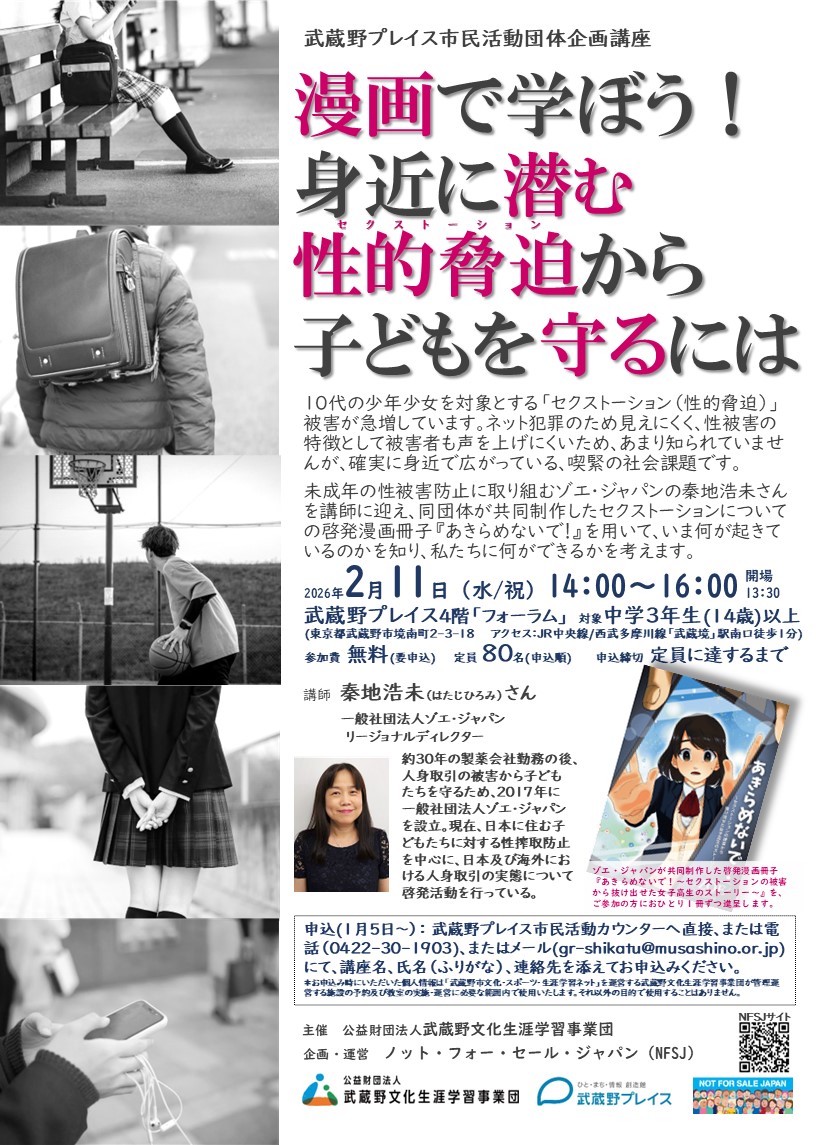‘Adult videos’ and ‘child pornography’ are inextricably linked to trafficking in persons. Until now we have been raising the issue of forced performance in adult videos and child sexual abuse material(CSAM) from the perspective of preventing damage to victims who are forced to perform.
This time we would like to consider the serious damage that pornographic images can cause to the viewer, their negative effects on a child’s growth and future relationships in adulthood, possibly leading to perpetrator-like behavior.
“Raised on Porn” is a 36-minute video shot by Benjamin Nolot (Exodus Cry), the same director of the documentary “Nefarious: Merchant of Souls,” which is an indictment of sex trafficking. It’s available on YouTube.
After watching this film with you, we will discuss the reality in Japan, where pornographic images abound and are accessible to almost anyone regardless of age, and how we can protect children and youth. We are especially looking forward to the participation of parents raising children and those involved in education and health care.
 Event flyer PDF
Event flyer PDF
June 21 (Saturday) 16:00-17:30
Wesley Center Room 204
(6-10-11 Minami-Aoyama, Minato-ku, Tokyo)
10-minute walk from Exit B1 of Tokyo Metro Omotesando Station
3-minute walk from Aoyama Gakuin Junior High School Mae bus stop on Route 01 Tokyo Metro bus from Shibuya Station.
Access: https://wesley.or.jp/en/about/access/
Target: General public, students (high school age and up), especially parents raising children and those involved in education and health care.
Language: Mainly Japanese, but English speakers are also welcome. No interpreters will be provided, but the film is in English with Japanese subtitles. Feel free to express your opinion in English during the discussion time.
Capacity: 20 people
Free of charge
Registration Required
Please fill out the application form from this link: https://forms.gle/LjiyL2UMBHnpGRbv9
“Raised on Porn: The New Sex Ed”
A documentary film produced by Exodus Cry, an NGO fighting sex trafficking in America. The film warns about the dangerous lifelong impact that viewing pornography can have on children— riveting interviews with men who grew up watching pornography from an early age, their wives and girlfriends, experts in fields such as psychology and brain science, as well as cinematic re-enactments.
(Magic Lantern Pictures/2021/USA/36min.) https://raisedonporn.com / https://www.youtube.com/watch?v=hzPylqS01qU
Discussion Facilitator: Nozomi Kuriyama
Assistant Director of NFSJ, freelance writer and editor, has been with NFSJ since 2012. She has been studying Nonviolent Communication for about 18 years and is currently working on sharing it with many people.
[Please note]
Eating and drinking are not allowed in this venue, but you can bring beverages in containers with lids.
The NFSJ Cafe is a casual learning opportunity held by Not for Sale Japan, which works on the issue of human trafficking and modern-day slavery, to discuss a single topic or watch a film over a cup of tea with interested participants. Please feel free to join us! (Due to this venue, tea and snacks will not be provided this time.) Contact: japan@notforsalecampaign.org
(Header image from “Raised on Porn” ©Exodus Cry)




-624x295.jpg)













 Event flyer PDF
Event flyer PDF

-286x300.jpg) “Which companies value people, as seen in the ‘Ethical Report Card of Companies’ project?”
“Which companies value people, as seen in the ‘Ethical Report Card of Companies’ project?”